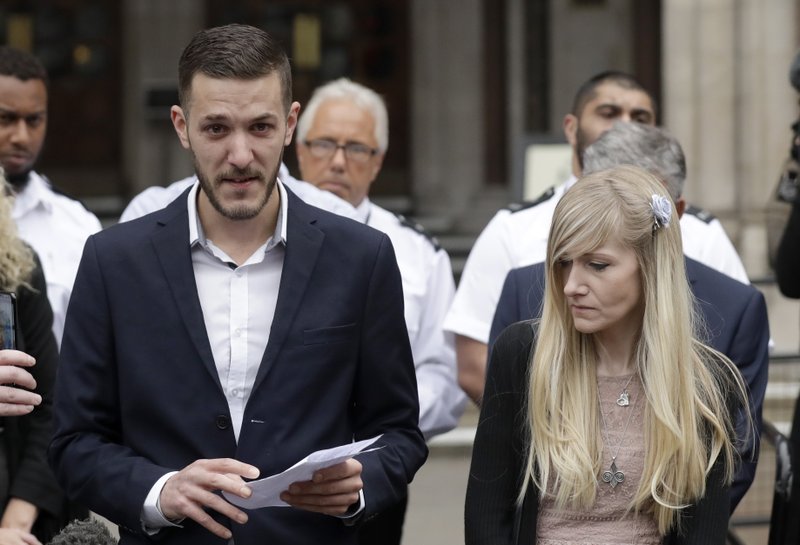LONDON -- Charlie Gard, the terminally ill British baby at the center of a legal and ethical battle that attracted the attention of Pope Francis and President Donald Trump, died Friday. He was one week shy of his first birthday.
Charlie's parents fought for the right to take him to the United States for an experimental medical treatment for his rare genetic disease, mitochondrial depletion syndrome, which left him brain damaged and unable to breathe unaided. His case ended up in the courts when doctors opposed the plan, saying the untested therapy wouldn't help Charlie and might cause him to suffer.
"Our beautiful little boy has gone, we're so proud of him," his mother, Connie Yates, said in a statement.
Charlie's legal case became a flash point for debates on the rights of children and parents, on health care funding, medical interventions, the responsibilities of hospitals and medical workers, and the role of the state.
The pope reacted quickly to the news of Charlie's death, tweeting late Friday, "I entrust little Charlie to the Father and pray for his parents and all those who loved him."
Vice President Mike Pence tweeted, "Saddened to hear of the passing of Charlie Gard. Karen & I offer our prayers & condolences to his loving parents during this difficult time."
Charlie's parents raised more than $1.7 million to pay for the experimental treatment they believed could prolong his life, but British courts consistently accepted the hospital's position, ruling that it was in Charlie's best interest that he be allowed to die.
His parents gave up their monthslong legal battle Monday after scans showed that Charlie's muscles had deteriorated so much that the damage was irreversible.
Upon announcing their decision, they wrote: "Mummy and Daddy love you so much Charlie, we always have and we always will and we are so sorry that we couldn't save you."
Information for this article was contributed by Leonore Schick of The Associated Press.
A Section on 07/29/2017
